Asteroid Impact Sites: Geographical Wonders From Space

Introduction
When we think about asteroids, the first thing that comes to mind is their potential danger. However, asteroids have also left a mark on Earth in the form of impact sites. These sites are both fascinating and terrifying, as they remind us of the destructive power of these celestial objects. In this article, we will explore some of the most famous asteroid impact sites on Earth.
The Chicxulub Crater
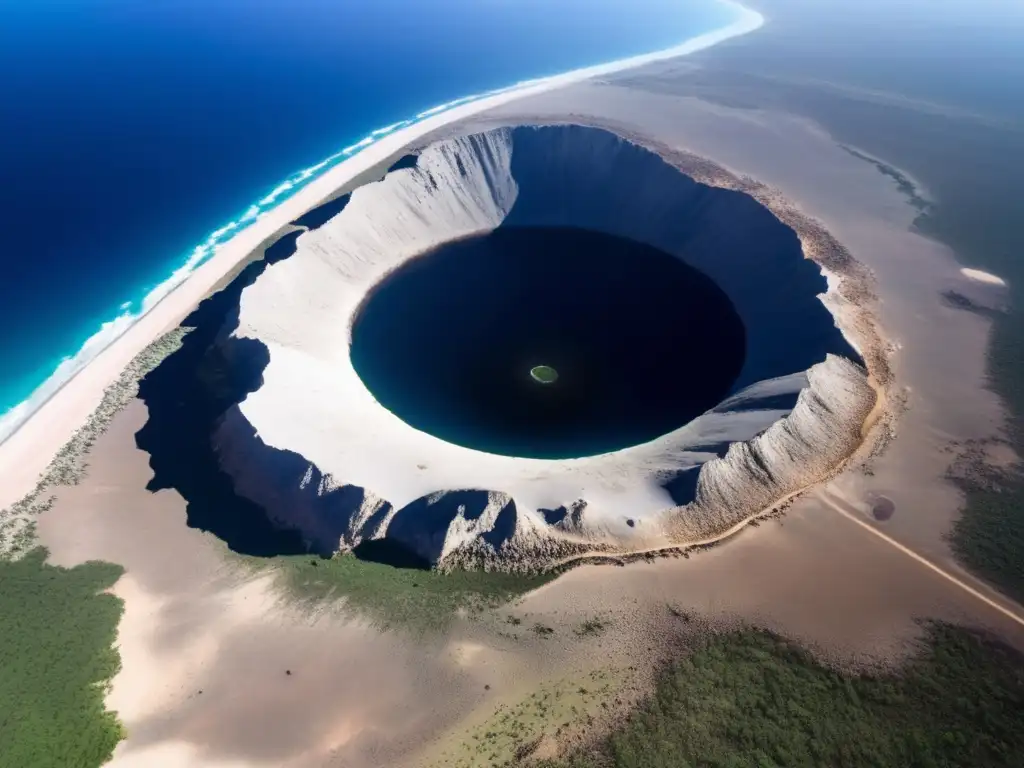
Discovery
In 1980, geologists discovered a strange geological feature on the coast of the Yucatan Peninsula in Mexico. It was a circular structure that measured over 180 kilometers in diameter. The structure was later identified as an impact crater caused by an asteroid that struck the Earth around 66 million years ago. This impact is believed to have caused the extinction of the dinosaurs and many other species.
Impact Effects
The impact that created the Chicxulub Crater released an enormous amount of energy, equivalent to billions of atomic bombs. The asteroid that caused it was estimated to be between 10 and 15 kilometers in diameter, and it impacted the Earth at a speed of over 65,000 kilometers per hour. The impact triggered earthquakes, tsunamis, and massive fires. The resulting dust and debris blocked out the Sun for months, causing a global cooling that led to the extinction of many species.
The Importance of the Chicxulub Crater
The Chicxulub Crater is one of the most important geological features on Earth, as it provides valuable insights into the impact events that have shaped our planet. The study of this crater has helped scientists understand the effects of asteroid impacts on Earth's climate, geology, and biology. It has also led to the discovery of new species that survived the extinction event.
The Barringer Crater
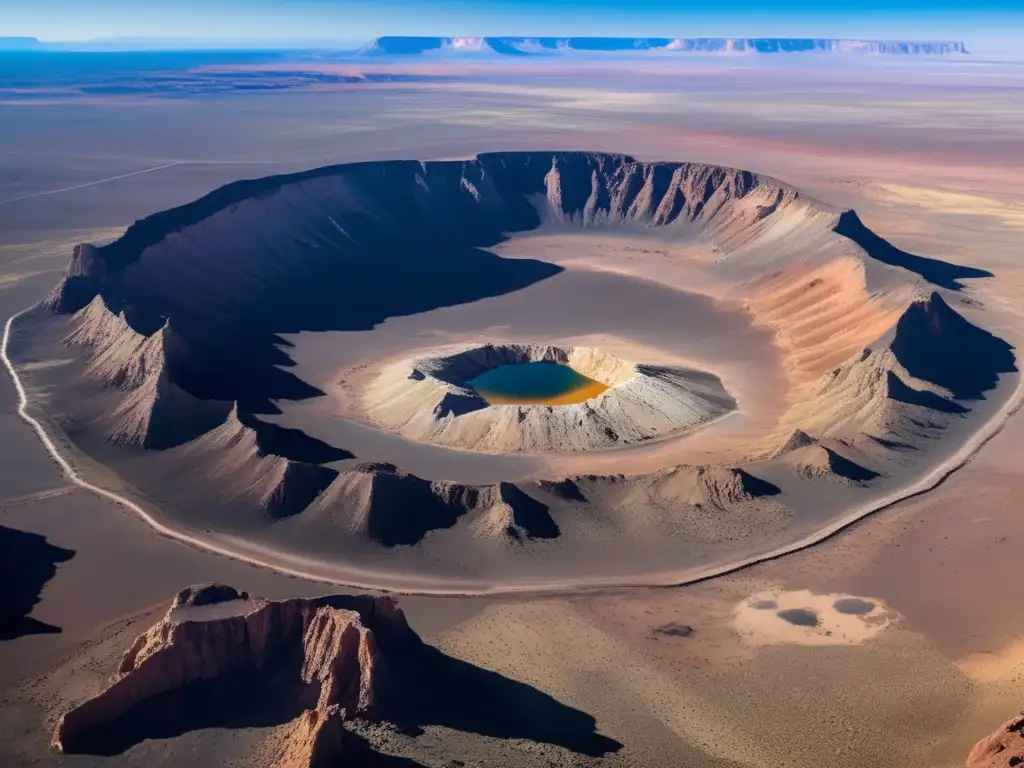
Discovery
The Barringer Crater, also known as Meteor Crater, is located in northern Arizona, United States. It was discovered in the early 20th century by Daniel Barringer, a mining engineer who believed that the crater was formed by a massive iron meteorite. His theory was later confirmed by scientific studies.
Impact Effects
The asteroid that caused the Barringer Crater was estimated to be around 50 meters in diameter. It impacted the Earth at a speed of over 70,000 kilometers per hour, releasing an immense amount of energy. The impact created a massive explosion that blasted rock and debris into the surrounding area, creating a circular depression that measures almost 1.2 kilometers in diameter and 170 meters deep.
The Importance of the Barringer Crater
The Barringer Crater is one of the best-preserved impact craters on Earth, providing valuable insights into the mechanics of impact events. The study of this crater has led to the development of new methods for estimating the size and speed of impacting asteroids. It has also provided important information about the mineral composition of asteroids.
The Sudbury Basin
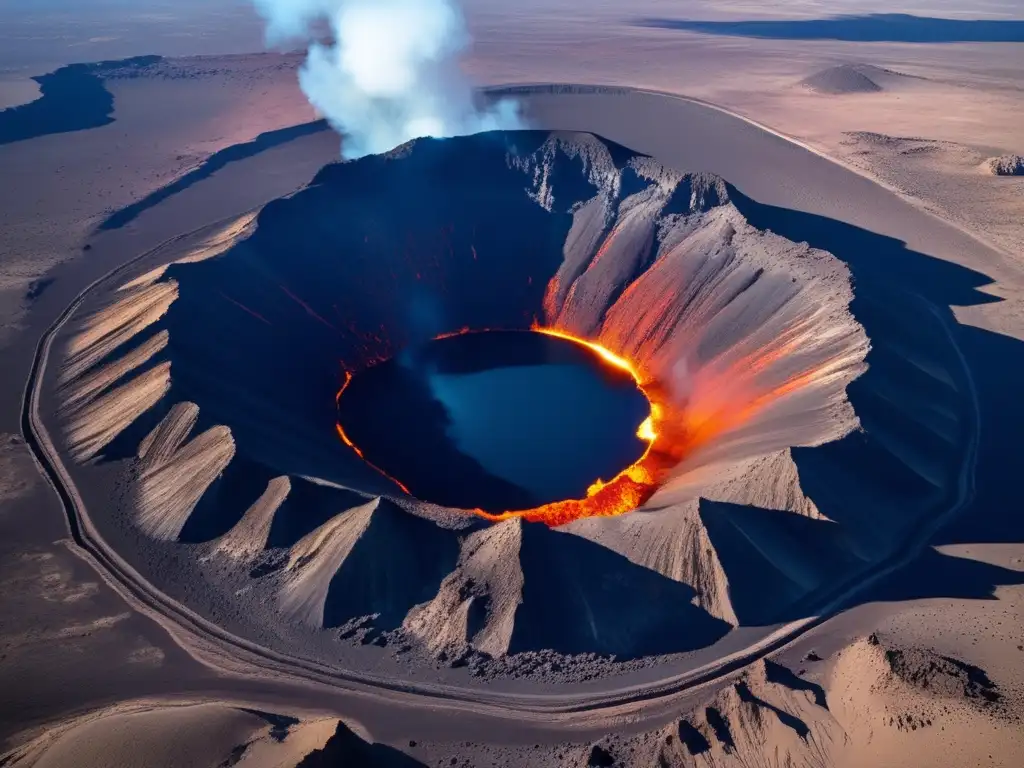
Discovery
The Sudbury Basin is located in Ontario, Canada, and is one of the largest impact structures on Earth. It was discovered in the late 19th century by Thomas Edison, who was conducting mining surveys in the area.
Impact Effects
The asteroid that caused the Sudbury Basin impact was estimated to be around 10 kilometers in diameter. It impacted the Earth at a speed of over 50,000 kilometers per hour, creating a massive shockwave that caused earthquakes and tsunamis. The impact also created a massive crater with a diameter of almost 200 kilometers.
The Importance of the Sudbury Basin
The Sudbury Basin is one of the most important geological features on Earth, as it provides valuable insights into the early history of our planet. The study of this impact site has led to important discoveries about the formation of Earth's crust and the evolution of life on our planet.
Frequently Asked Questions
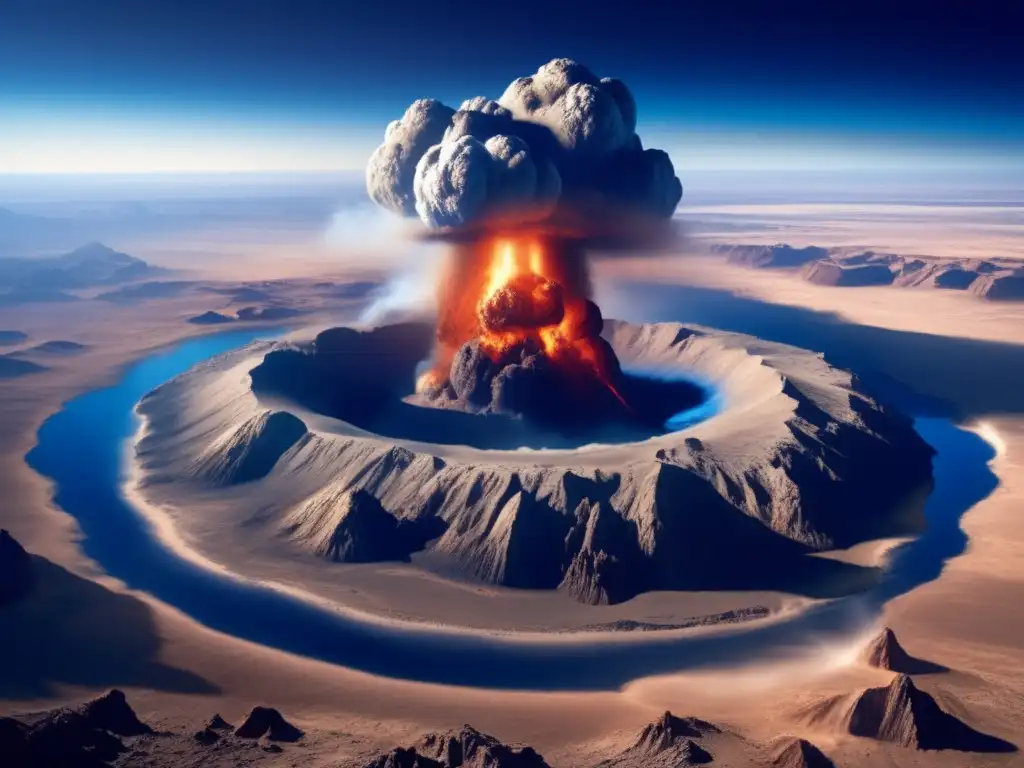
-
What is an asteroid impact site?
An asteroid impact site is a geological feature created by the impact of an asteroid on Earth's surface. These sites are characterized by circular depressions and other geological anomalies.
-
How do scientists study asteroid impact sites?
Scientists study asteroid impact sites by analyzing the geology and mineralogy of the surrounding area. They also use remote sensing techniques, such as satellite imagery and ground-penetrating radar, to map the structure of the impact site.
-
What can we learn from asteroid impact sites?
Asteroid impact sites provide valuable insights into the mechanics of impact events, the effects of asteroid impacts on Earth's climate and geology, and the evolution of life on our planet.
-
Are there any asteroid impact sites on other planets?
Yes, there are many impact sites on other planets, including Mars, Venus, and the Moon. These sites provide valuable insights into the geological history of our solar system.
-
Can asteroid impacts be prevented?
Efforts are being made to identify and track potentially hazardous asteroids, but preventing impacts is currently not possible.
Conclusion
Asteroid impact sites are fascinating geological features that remind us of the power and unpredictability of the cosmos. They also provide valuable insights into the history and evolution of our planet. As we continue to explore the solar system, it is important to study these impact sites and learn from them. We encourage readers to share their thoughts and experiences in the comments section and to participate positively in www.asteroidrealm.com. Thank you for your time and attention.
Additional Resources
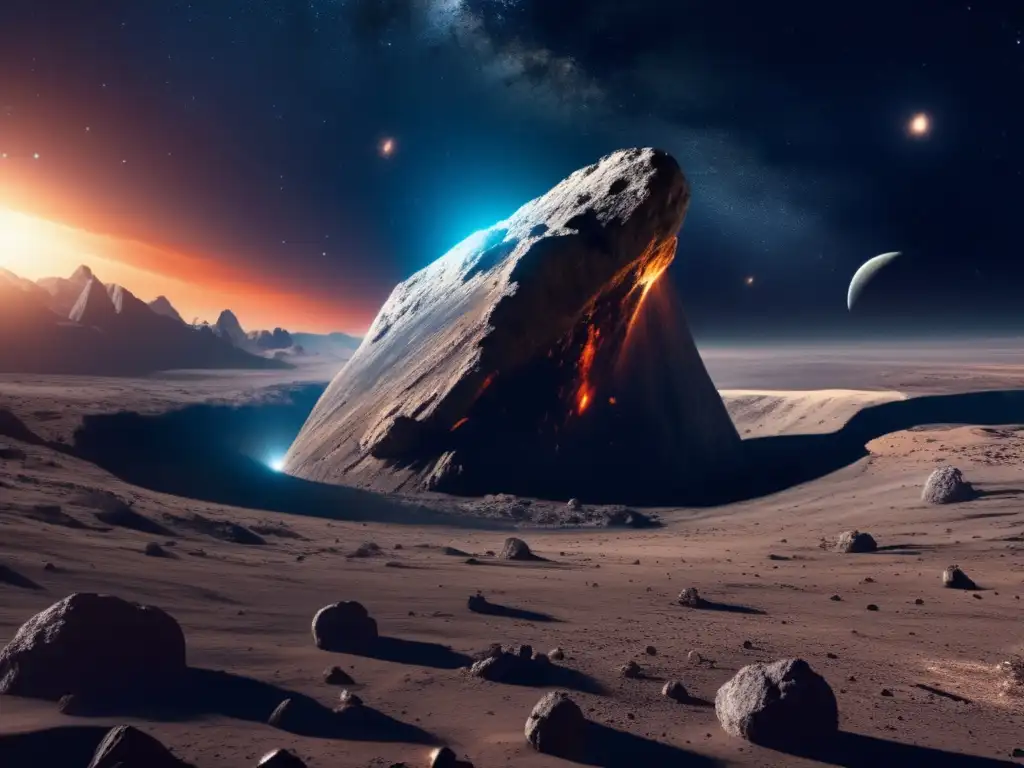
For more information about asteroid impacts and impact sites, please visit:
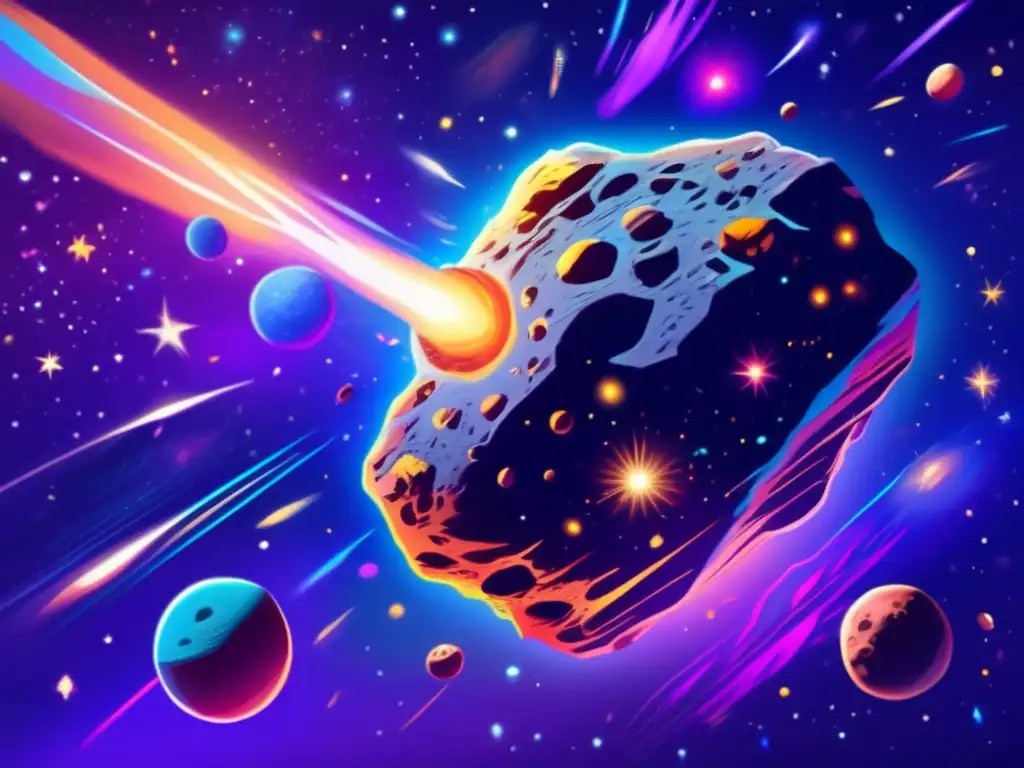 From Meteoroids To Meteorites: The Life Cycle Of An Asteroid
From Meteoroids To Meteorites: The Life Cycle Of An Asteroid Peering Into The Past: Asteroid Impacts In Ancient History
Peering Into The Past: Asteroid Impacts In Ancient History End Of The World: How Asteroids Can Cause Extinctions
End Of The World: How Asteroids Can Cause ExtinctionsIf you want to discover more articles similar to Asteroid Impact Sites: Geographical Wonders From Space, you can visit the Asteroid Impacts category.
Leave a Reply

Articulos relacionados: